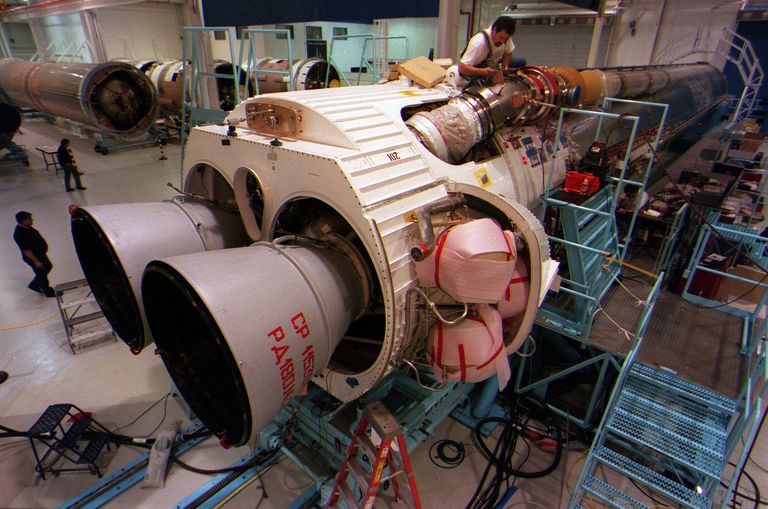They will have to go cap in hand to Uncle Vlad and do some fence repairs first, the US has always lagged behind the Russians in rocket engine performance, which is why they faked the moon landing, see http://www.serendipity.li/more/myth_of_apollo.htm
" By David Grossman
Apr 20, 2018
The burgeoning private space industry might find itself caught in the middle of geopolitical tensions between the United States and Russia. Russian lawmakers have drafted a law that would ban cooperation between the two countries on building rocket engines, including sales of the crucial RD-180.
The RD-180 powers the Atlas V, the launch system maintained by United Launch Alliance (ULA), a joint company owned by both Lockheed Martin and Boeing. Earlier this year the company was awarded a $351 million dollar contract by the U.S Air Force for launching satellites.
Derived from Soviet rocketry—RD engines, built by NPO Energomash, powered the famed Vostock and Soyuz missions—the RD-180 is living proof of Russia's outsized power in space as opposed to the rest of its economy. In the early 90s, the United States suffered the tragedy of the Challenger and a series of Titan rocket failures. Combined with a shrinking military budget and the collapse of the Soviet Union, a deal with NPO Energomash to build rocket engines appeared to be practical, economically sound and an extension of goodwill to a new country with an established industry.
The deal was signed in 1995 with the promise that American RD-180s would be built within 4 years. However, spiraling costs and production overruns kept the American engine from becoming a reality. By 2008, the Air Force and ULA agreed to end domestic production attempts. Thanks to an "unmatched combination of performance and reliability," to quote a ULA study, NPO Energomash has become essential to American space flight.
So essential, in fact, that starting in 2014 there have been American attempts to develop an equivalent. That year saw conditions that might strike those living in 2018 as familiar: Heightened tensions between America and Russia brought forth economic sanctions. New kid on the block SpaceX tried to argue that purchasing RD-180s was actually illegal, considering how NPO Energomash is majority-owned by the Russian government. While the company made some legal headway, various federal agencies weighed in to say that buying RD-180s was fine.
However, the case brought Russian threats of a boycott, which then led to American threats of a ban. A Congressional compromise in 2016 agreed to phase out RD-180s by 2022.
Now, tensions have welled up again. While a boycott would still prove problematic for ULA, steps are being made towards American independence from the RD-180. Blue Origin, the space travel company owned by Jeff Bezos, has announced successful tests of its BE-4 rocket engines. ULA hopes to use them by 2020.
The BE-4 can't match the RD-180 in terms of sheer performance power, but Blue Origin hopes that its increased reusability will sweeten sales. Until then, the space industry is hoping that geopolitical tensions calm down."
Full Source: https://www.popularmechanics.com/sp...ons-threaten-us-use-of-russian-rocket-engine/
- Forums
- World Events
- Up Up and away ...........
They will have to go cap in hand to Uncle Vlad and do some fence...
- There are more pages in this discussion • 5 more messages in this thread...
You’re viewing a single post only. To view the entire thread just sign in or Join Now (FREE)





